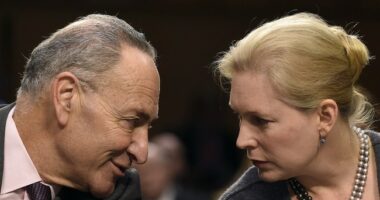Carly forked out $10,000 on two intrauterine insemination (IUI) procedures at age 37 to prove she was infertile and make herself eligible for the government rebate.

It wasn’t until April 1 that the Medicare definition of “infertility” in Australia was extended to include single and LGBTIQ+ women, meaning they can access subsidised IVF treatments without needing to prove infertility first.
If this announcement took place a few years ago, Carly would have skipped this painful box-ticking exercise.
“I remember telling my parents, ‘I have to complete two IUI cycles to be deemed infertile before commencing IVF with rebates’. I was a bit shocked, especially in this day and age,” Carly told 9news.com.au.
”It just baffled me. I hadn’t realised that was going to happen until I was in the process.”
To be eligible for the rebate, Carly had to pay for two IUI treatments, which didn’t work.
That came with its own heartbreak and grief.
“I wrote down everything from my parking to my medication and appointments, all things included, it cost me just over $10,000,” Carly said.
“I didn’t have limitless money or time, because now I’m 39, and you not only have to put in the money and time, with administering needles and medication, you’re also going through so much emotionally and physically.”
The two failed IUIs meant Carly then qualified for an IVF rebate, eventually saving her around $6000 all up.
The IVF rebate scheme differs from state-to-state.
She welcomed her son, Rylan, six months ago.
Carly said she’s lucky it only took one round of IVF to fall pregnant.
If she didn’t have the rebate to fall back on, a second try may not have been an option.
She’s glad other solo mothers won’t need to jump through the hoops she did.
“I think it’s fantastic news. It could be the difference that means you can afford doing another round and getting a baby,” Carly added.
Fellow single mother Rikki was in a very similar boat.
The Queensland mum didn’t want to wait, however, and skipped IUI to pay for her almost $20,000 treatment fully out-of-pocket.

Rikki told 9news.com.au she fell pregnant with son Jasper at age 33 after saving up for years.
“When I first considered it, I had assumed I would be eligible for Medicare rebate,” Rikki explained.
”I was really frustrated… I pay taxes, I have private health, I’ve always done all those right things, yet I wasn’t covered.”
Now happily raising an 18-month-old, Rikki said she’s pleased the financial barrier to single motherhood isn’t as high to climb.
Though she said the announcement from the federal government went under the radar during a jam-packed election campaign, Rikki hopes the news will reach the right people.
”There is a whole spectrum of people doing this,” she said.
“I think reducing kind of those financial barriers is essential to making sure that this is actually an option for all women and not just well-financed women.”
Alisha Burns, who created the Solo Mum Society, agreed with Rikki and said the “long over-due change” will help single women everywhere achieve their goal of motherhood.
“Updating the Medicare definition of infertility to include solo mums is a massive step forward in recognising that there’s no one ‘right’ way to create a family—and that not having a partner shouldn’t be a barrier to accessing fertility support,” she said.
“As someone who went through multiple rounds of IVF on my own and now supports thousands of women through Solo Mum Society, I know how disheartening it’s been for single women to be told they have to ‘prove’ infertility when all that’s missing is a partner.”

The extended definition, announced by Assistant Health Minister Ged Kearney, also hugely impacts LGBTIQ+ people wanting to have a child.
The queer community, which has long lobbied for such a change, is celebrating this win in Australia.
“We’ve heard from community for a long time now about the discrimination they face when starting a family using an IVF clinic,” said Executive Officer of Rainbow Families Ashley Scott.
“Some people were able to access the Medicare rebate on their first attempt, while others had to prove they were medically infertile — sometimes after three failed rounds of IVF or IUI. Even within the same clinics, there was a lack of consistency.”
“We’ve been actively lobbying the Federal Government to ensure that LGBTQ+ people are treated like any other family,” Scott added.
“This week’s announcement is a massive win for our community.”







